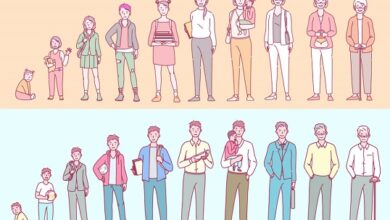What is Conception in Education and spontaneous conceptions
Conception
Conception is a term whose meaning concerns the process of pregnancy , when a new being is generated in the womb of a woman or female. Conception can also mean understanding , comprehension , a person’s perspective regarding anything.
The word is generally used in relation to the biological process of development of an embryo from fertilization. For medicine, all uterine changes and in the woman’s body in general during pregnancy consist of conception. More specifically, for medicine, fertilization describes the exact moment when the egg is fertilized by a spermatozoon, forming the cell we call a zygote, and there is the beginning of pregnancy.
For psychology , the term conception is linked to the idea of creativity . Conceiving a new idea, a new perspective on the world or a way of feeling it, are examples of how psychology uses the word conception. Thus, conception in this context would be linked to the inventive capacity of the imagination.
Philosophy uses the idea of conception in a way similar to that of psychology, however here, instead of being linked to imagination, the term would be more linked to the rational intelligence of the human being. For Philosophy, conception also refers to a creative act, however, for the philosophical perspective it would be the act of creating new concepts and new theories from reflection and understanding about the world around us. It is an attribute of thought.
Thus, from these reflections, the philosopher or the human being who thinks acquires a vision of the world, which would be the conception that he has about existence. This conception would be the way in which man understands and explains the world around him, life, historical and individual processes.
Conception in Education
Over the theoretical years of education, theories were formed and educational methods and concepts were created to address the theme of education. As a result, distinct and divergent conceptions on the subject emerged, from which we can highlight the traditional and progressive conceptions .
In addition, education theorists also developed theories that divided education into mechanistic and organic conceptions . In the mechanistic conception , the student is seen as a machine that can be worked on and improved based on stimuli from the external environment. In the organic conception , the student is understood as an organism that must be stimulated so that, based on his experiences and the way he experiences them, he can, through a process that starts from his interior, promote the changes that will consist of the educational process.
Thus, the mechanistic conception would be linked to a traditional conception of education; while the organic conception is linked to a progressive approach.
Conception of education and development
There are several methods and ways of approaching education, with traditional or progressive conceptions , which represent different perspectives.
Furthermore, the general theory of education proposes two different conceptions: an organic and a mechanistic one . The organic conception addresses the human being as an organism that can be changed from within, based on stimuli. On the other hand, the mechanistic conception contemplates the human being as a machine, whose attitudes can be changed through external stimuli.
Psychology also indicates different theories of development, more specifically the innatist theory (the notion that aspects, characteristics or basic aptitudes of human beings are innate – such as personality, values, behavior, etc.); environmentalist theory (also known as behaviorist theory, indicating the importance of the surrounding environment for molding their behavior, taking away the importance of reasoning, feelings and desires of the individual) and interactionist theory (development occurs thanks to the interaction between the individual and their surroundings, as they influence each other).
spontaneous conceptions
Psychology also works with the concept of spontaneous conceptions , also known as spontaneous concepts. These conceptions would be those that people learn naturally in everyday life, empirically, without having been taught.
Living with a certain situation, an obstacle that needs to be overcome, a challenge, can make us learn something, that we develop a spontaneous conception.
They are very characteristic of the way children interact and learn things in the world. For example, a child, in contact with the computer, is able to learn to use it spontaneously without the need for formal education.



